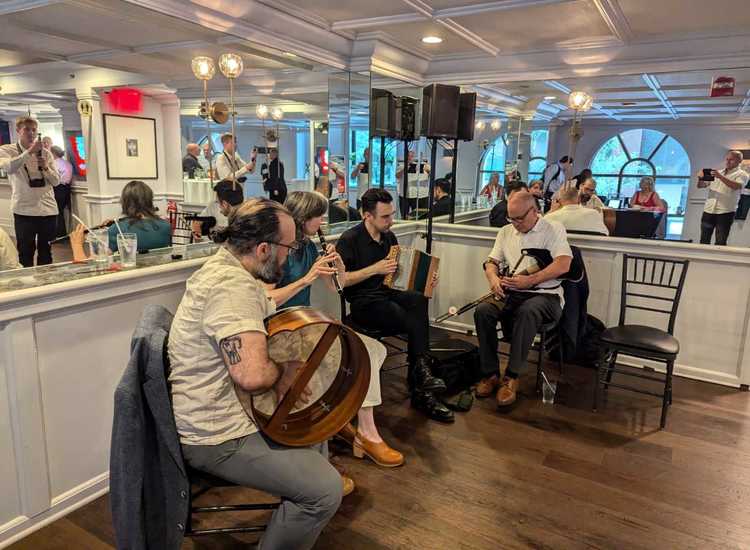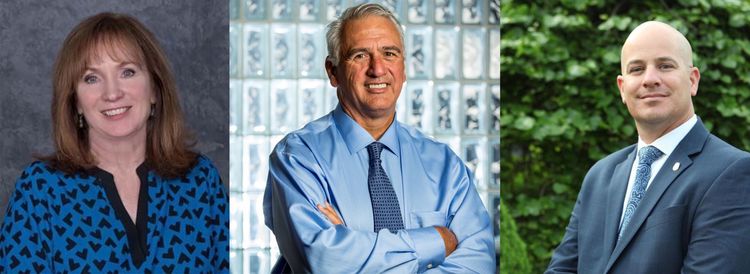Garret FitzGerald was a simple and a complicated man.
By that I mean he had a habit, mischievous some would say, of making the complicated simple, and the simple complicated.
Not everyone who crossed paths with the twice taoiseach could fathom that sort of approach to the world, and it invariably led to misunderstandings. But then there was the man himself, no pushover despite all the academic airs and trappings. FitzGerald had a hard inner core, the kind you need to propel yourself to the top of that fractious gaggle of human beings that we call political parties.
He had what it took to lead his country, and he had what it took to go into a room with Margaret Thatcher and not run out seconds later screaming in abject terror, frustration, or both.
And, not to forget, he was a nice guy.
I met Fitzgerald a number of time times down the years and as a reporter for the Irish Press in the early 1980s was frequently privy to his daily labors from a perch in the press gallery in Dáil Eireann.
That entailed witnessing jousts between "Garret the Good" and Charlie Haughey, who, we were required to believe, wasn't so good, or at least wasn't in the least bit like Garret.
But of course they had more in common than you might think and while Charlie, famous for turning the political screw, could be most charming, Garret, famous for being most charming, could very deftly turn the political screw when such turning was required.
But what of his straddling the complicated and the simple? FitzGerald was known to have certain hobbies, one of them being the memorizing of continental European rail timetables, just for the fun of it mind. This was the man seeking out the complicated and reducing it to the simple, at least to himself, if not the rest of us.
And then there was his knack for dismissing the simple and plunging into complexities. I once interviewed FitzGerald at Glucksman Ireland House during one of his New York visits.
As it happened, I had been working in the Dáil on the infamous day when John Bruton, as finance minister, was pushing, or attempting to push, the government's budget bill into law. Now, under the rules, the budget is voted through line by line, each line being a financial motion. If just one line is defeated in a vote, or division, the government falls and there is an automatic general election.
The line in the budget that started to belch smoke early that day was a proposal to place a tax on children's shoes. It wasn't going to be up until later that evening, but from very early on the word had drifted up to the press gallery that this would be a problem for at least one independent TD and as the government was living on a knife edge in terms of Dáil votes. Just one extra in the "Níl" (No) column would be decisive.
We watched as the day progressed and the various motions secured slim majorities. But there was that smoke belcher, looming ever larger. It was akin to seeing the Titanic out of one corner of the eye and the iceberg in the other.
Bruton didn't appear to see it and neither, presumably, did his boss, FitzGerald.
What was expected by virtually everyone in the building happened that night. Jim Kemmy, an independent TD from Limerick, voted against the tax on children's shoes and the government came tumbling down.
I put this to Fitzgerald in Glucksman. Did he not realize what was going to happen because the rest of us saw the ship heading for the berg?
It wasn't like that at all, FitzGerald replied. And off he went into this complicated reasoning over what really went down, and why.
I gave up and didn't argue. It was Garret the stubborn contrarian who was talking now. The politician was somewhere else, perhaps studying airline schedules to pass the time.
Words don't always convince, even when they are pearls delivered by an intellect on the scale of Garret FitzGerald's.
At the end, I threw caution to the wind. No, I said, I don't buy it. Your party made a political hash of it that day and you won't convince me otherwise.
We agreed to move on to other matters.
During his long career, FitzGerald the economist was mostly correct in his assessments, particularly when it came to warning that Ireland, not exactly flush in the 1970s and 80s to begin with, was living beyond its means.
But the economist in him could stump the politician and some would argue that FitzGerald might have been better off sticking with the dismal science rather than politics, which of course can be dismal too.
But that was never going to happen. Garret FitzGerald was always two for the price of one. A simple economist and a complicated politician, or the other way around.
And yes, he was a nice guy and seemed always ready to allow people to take their pick of the above.










